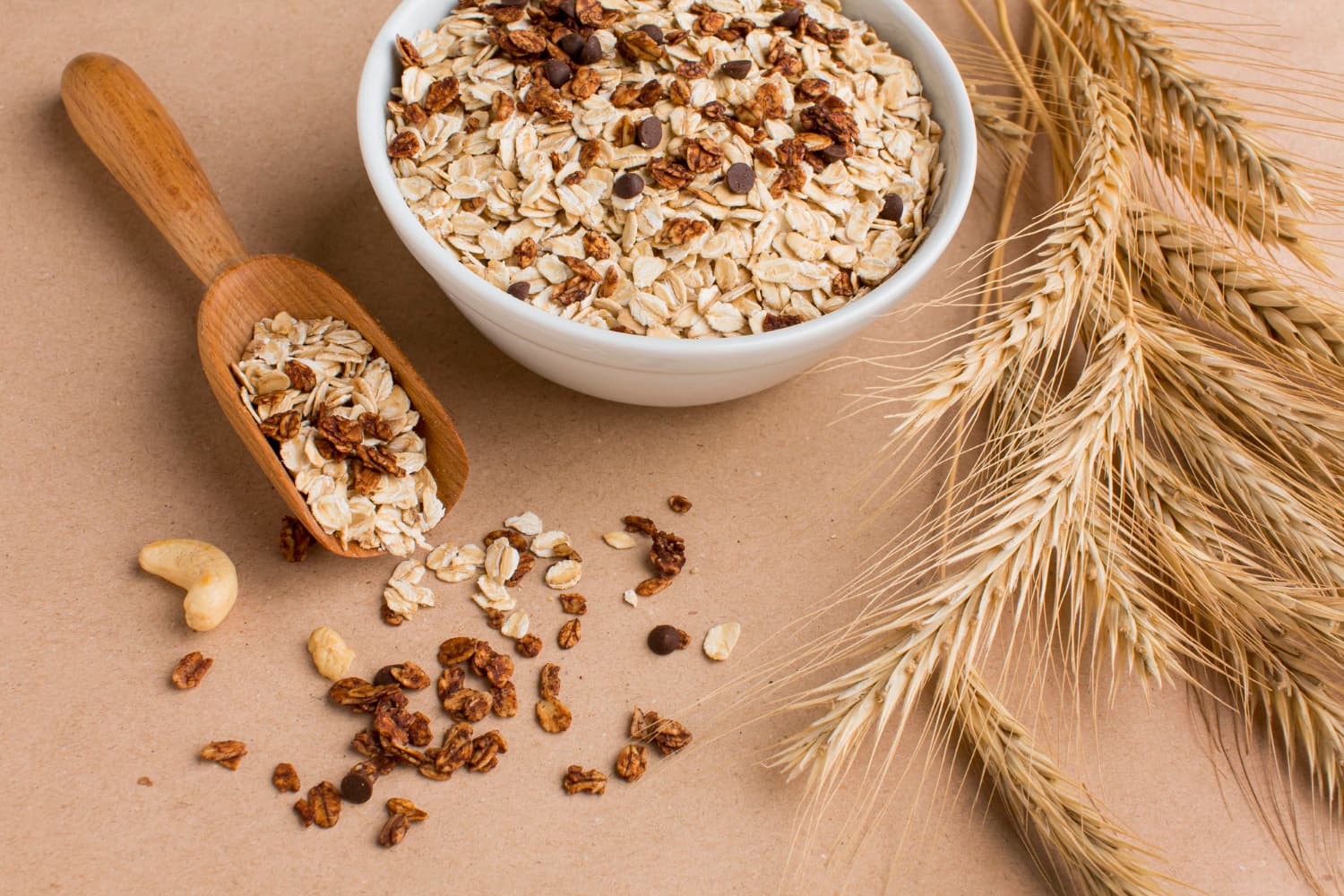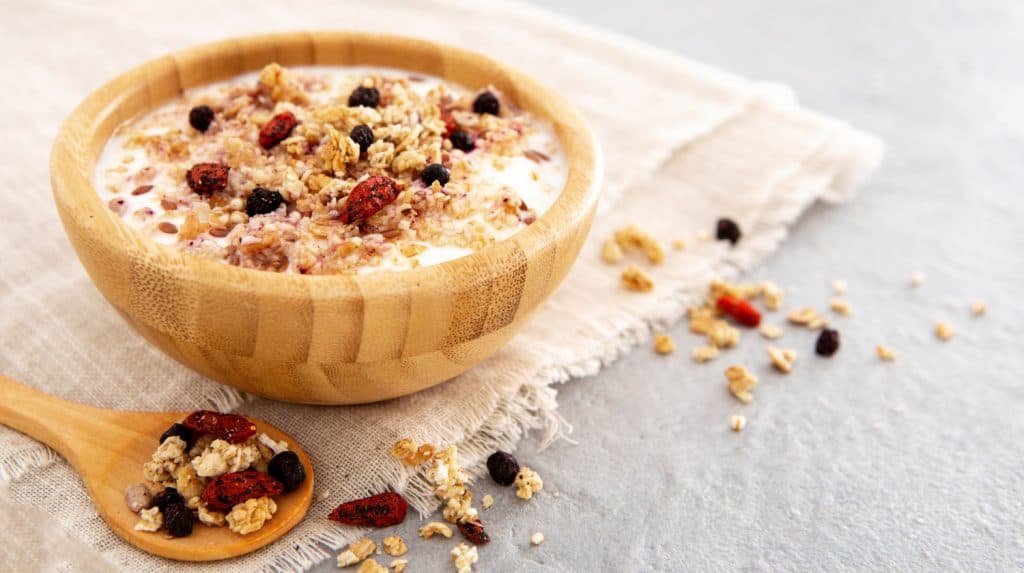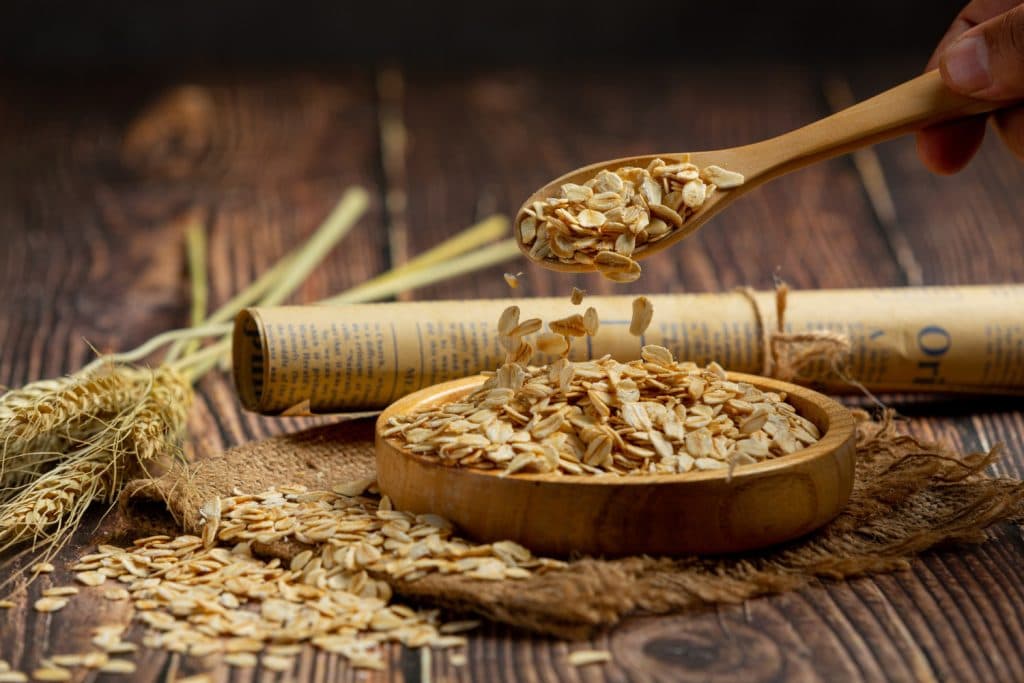Back to blog
Are Oats Healthy or Just Simply Delicious?

Are oats healthy enough to be part of your daily diet? These whole grains, also known as Avena Sativa, have gained widespread popularity in recent years due to their incredible health benefits. They can also be used in many forms, like bread, soup, milk, or flour, making them an ideal choice for many tastes and dietary needs. In this article, we’ll explore the benefits of oats and the different ways to enjoy their delicious taste and nutritious value.
Are Oats Healthy and What Makes Them Nutritious?
Oats have a well-balanced nutritional profile. They are a good source of fibre, high-quality protein, carbs, and essential amino acids. Every 100 grams of raw oats contains the following:
- Water: 8%
- Protein: 16.9 grams (g)
- Carbohydrates: 66.3 g
- Fibre: 10.6 g
- Fat: 6.9 g
- Sugar: 0 g
You can read more about the High Protein Diet for Vegans.
Oats Benefits
Organic oats are among the healthiest grains on earth, as they’re gluten-free and rich in vital nutrients such as vitamins, minerals, fibre, and antioxidants. They’re known to aid in weight loss, lower blood sugar levels and reduce the risk of heart diseases. Let's explore their numerous benefits:
- High in antioxidants; and beneficial plant compounds that are almost exclusively found in oats, which may help reduce oxidative stress by dilating blood vessels and improving blood flow.
- Rich in fibre: Helps relieve constipation, improve digestion and support the growth of beneficial bacteria in the digestive system.
- Contain a large amount of the soluble fibre beta-glucan: Which can help lower bad cholesterol levels (LDL) and reduce the risk of heart attacks, heart diseases and arterial damage.
- Help regulate blood sugar and prevent diabetes: Due to beta-glucan’s ability to delay glucose absorption into the bloodstream.
- Packed with vitamins and minerals: Including iron, magnesium, selenium, zinc, copper, folate, calcium, potassium, and B vitamins, which can boost immunity and fight against inflammation.
- Promote weight loss and reduce the risk of obesity: Thanks to their satiating effect that reduces calorie intake and increases the feeling of fullness.
- A good source of protein: In fact oats have a higher protein content compared to most other grains.
- Support skincare: As they help relieve itching and skin irritation and soothe conditions like eczema.
- Reduce the risk of childhood asthma: Infants fed oats early on may have lower risk of developing asthma later in life.
You can read more about Magnesium Benefits and the Best Sources of Calcium.
Delicious Taste, Countless Ways

Oats are commonly boiled in water or milk to be eaten as porridge AKA oatmeal for breakfast. They are also often included in baked goods, like muffins, biscuits and granola bars. Many people prefer steel-cut, crushed, or rolled oats because they’re quicker to prepare, unlike the mushy oat groats, in their most whole and unprocessed form, which takes much longer to cook. There are multiple other uses for this whole grain food, including:
Oat Bread: The Basics
Oat bread is made primarily from oat flour and other ingredients like water, salt, and yeast. It’s an excellent choice for those looking for a healthier alternative to traditional white bread. Rich in fibre and protein, it promotes satiety for longer periods and helps regulate blood sugar, making it ideal for people with diabetes and those managing their weight.
Oat Soup: A Light Meal
Oat soup is easy to prepare and highly nutritious, especially when vegetables or proteins like chicken or lentils are added. It improves digestion and provides sustainable energy, making it perfect for a light dinner or a quick, healthy lunch.
Oat Bran: Concentrated Fibre for Gut Health
Oat bran is the outer layer of the oat grain and one of the richest natural sources of soluble fibre. It helps reduce cholesterol and improve bowel movements. You can easily add it to yoghurt or smoothies. Many oat products contain small amounts of bran, and some manufacturers reintroduce it to boost nutritional value.
Health Warning: Is Oat Safe for Everyone?

Despite its many health benefits, there are some health precautions to consider before adding oats regularly to your diet, especially for those with certain medical conditions. These warnings include the following:
- Gluten Sensitivity (Celiac Disease): Oats are naturally gluten-free, but they may be contaminated during processing. For safety, choose certified gluten free oats.
- Digestive Issues: Eating excessive amounts of these grains may cause gas or bloating. Start with small amounts and increase gradually. Drink water alongside it.
- Irritable Bowel Syndrome (IBS): Oat bran may irritate the lining of the intestines in some people. Try finely ground oats instead and observe how your body responds.
- Kidney Disease: Due to their high potassium and phosphorus content, these grains may not be suitable for patients with chronic kidney disease. Consult your doctor before consuming them regularly.
You can learn more about Gluten Intolerance Symptoms and Diagnosis.
Healthy Meal Delivery
Take your first step towards better health with Calo App, your smart companion for balanced nutrition and wellbeing. Whether you're just learning about the benefits of oats or looking for an easy overnight oats recipe to include in your diet, Calo makes it easy for you. With our personalised meal plans uk, expert nutritional tips, and detailed tracking of your daily intake of carbs and fibre, everything you need is right at your fingertips.
FAQ
How to make overnight oats at home?
Overnight oats made easy, add chia seeds, maple syrup or honey, salt, and yoghurt, to your oats in a lidded jar. Pour in almond milk, and stir thoroughly to create a mixture. Cover and store overnight, or for up to 5 days in the fridge.
Is oat milk good for your health?
Oat milk contains a healthy amount of fatty acids, protein, minerals, vitamins, dietary fibre, and a variety of micronutrients and provides several health benefits, as it reduces blood sugar, lowers cholesterol, and prevents cancer. However, it may raise blood sugar levels, especially if sweetened or have added sugar. Even so, it may still have a milder effect than cow milk due to its fibre content.
Are oats allowed in the Keto Diet?
Generally, no, they’re not allowed due to their high carbohydrate content. One cup of cooked oats contains about 51 grams of carbs. While they offer many health benefits, the keto diet requires significantly reducing carbs intake.
In conclusion, the question of are oats healthy goes beyond doubt. It's no exaggeration to say that oats are a powerhouse grain for lasting health. They combine delicious flavour with high nutritional value and offer a wide range of health benefits that make them worthy of being a staple in your diet. As a natural, safe, and effective option in a world filled with processed alternatives, these grains can be your daily ally for better health, energy, and quality of life. You can read more about Quinoa Seeds and learn the Real-Life Guide to Healthy Living and many more topics on the Calo Blog.








